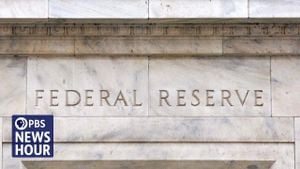Rachel Reeves is making waves with her ambitious plans for pension reform, aimed at giving the UK economy the boost it desperately needs. The recent announcement from the Chancellor could mark the most significant overhaul of the pensions market seen in decades. By transforming the nation's fragmented pension funds and creating 'megafunds,' Reeves hopes to channel tens of billions of pounds toward business investment and much-needed infrastructure projects.
The need for such reforms stems from the perception of the UK pension industry as overly cautious and dispersed. Financial regulators have long made it challenging for pension funds to invest significantly higher risk assets, such as UK equities, which has hindered local businesses from accessing the capital needed for growth. This cautious approach has often led to smaller investors veering toward the more dynamic US market, leaving the UK stock market under-funded and less alluring.
Now, the proposed pension 'megafunds' are set to consolidate 86 local authority pension schemes across the UK, merging them potentially with workplace pension funds. According to the projections, this change could create several funds, each with more than £100 million. Notably, the Local Government Pension Scheme could manage assets exceeding £500 billion by 2030.
"The intention behind this radical reform is to mobilize these assets to invest more significantly in local public services and infrastructure," Reeves has noted, emphasizing the importance of enabling pension schemes to drive economic growth directly. The idea is to put the pensions of approximately 6.7 million local government workers to work, which is expected to ignite growth within local economies.
Reeves' pension shake-up is both welcomed and met with skepticism. Stakeholders across the political spectrum have cautiously embraced the proposals since they promise to reduce costs, spur creation of long-term investment vehicles, and potentially offer higher returns for pension beneficiaries. Robert Colville, from the right-wing Centre for Policy Studies, highlighted the significance of these reforms, stating, "There is significant potential here to cut costs, generate returns, and create major vehicles for long-term investment."
Despite the enthusiastic support, some experts worry about the specifics of the plan. Ros Altmann, pensions expert and former government adviser, expressed concerns over the absence of detailed requirements for pension funds to invest their assets domestically. Altmann argues, "Considering at least 25% of each pension scheme contribution originates from taxpayers, there should be stringent guidelines ensuring substantial proportions are invested back within the UK level to nurture domestic growth and increase the value of investor pensions."
Concerns around the sheer scale of these new megafunds have been echoed widely. Critics warn against conflation of government mandates to drive investments and the risk involved for pension savers. Tom Selby, from AJ Bell, pointed out potential pitfalls: "Conflation of government expectations of stimulating local investment and securing optimal retirement outcomes poses dangers for pensioners. If investments don’t pan out, it could disadvantage those whose savings are at stake," he noted. While the idea of reforming the pension system is sound, the execution is fraught with complexity and potential setbacks.
The potential to redefine the investment fabric within the UK lies not just with Reeves' administration but also with the legislation expected to emerge from the newly proposed Pension Schemes Bill, anticipated to be introduced next year. The proposal intends to improve the performance of underwhelming pension schemes and enforce stricter compliance with standards to align with the new goals.
Reeves is drawing on international models, particularly from Australia and Canada, which boast larger pension funds with greater flexibility to invest across riskier, high-growth sectors. The approach aims to leverage economies of scale, optimizing returns for pension savers and stimulating the national economy through strategic investments.
Sir Steve Webb, former pensions minister, articulated the nuances of this potential reform, remarking, "While size can yield efficiencies, it is not always indicative of performance. Some smaller pension schemes offer excellent returns achieved via generous employer subsidies, and such schemes must be preserved against any blanket size rules.”
The timing is especially pressing, as the UK economy continues to wrestle with challenges exacerbated by past crises, including those linked to the financial backdrop of 2008-2009. The government’s commitment to a long-term vision of the economy necessitates innovative measures like the pension reform proposals to rekindle growth. Reeves has indicated this is not just about reform, but rather the beginning of aligning the pension structures with the pressing investment needs of the country.
Addressing the City of London, Reeves elaborated on her commitment to ushering structural changes within the pensions framework: "This isn’t merely about numbers on paper; it's about real money transforming lives and communities across Britain. We plan to make every region benefit from the substantial investment this will herald."
The Chancellor's plans have attracted attention from business leaders who have emphasized the importance of creating confidence within the UK as the optimal destination for investments. Challenges from tax hikes and recent budget constraints have raised fears about how businesses can navigate the upcoming economic terrain and regain profitability. To complement Reeves’ vision, businesses now hope the reform will create conducive conditions for growth.
While the forthcoming changes could offer unprecedented opportunities for investment, the travails of achieving tangible results remain evident. Policy makers must tread carefully to balance growth ambitions with the fiduciary duties owed to pension savers. After all, the ultimate goal of this ambitious overhaul is not just about inflows of capital but ensuring long-term stability and prosperity for contributors and future retirees.



